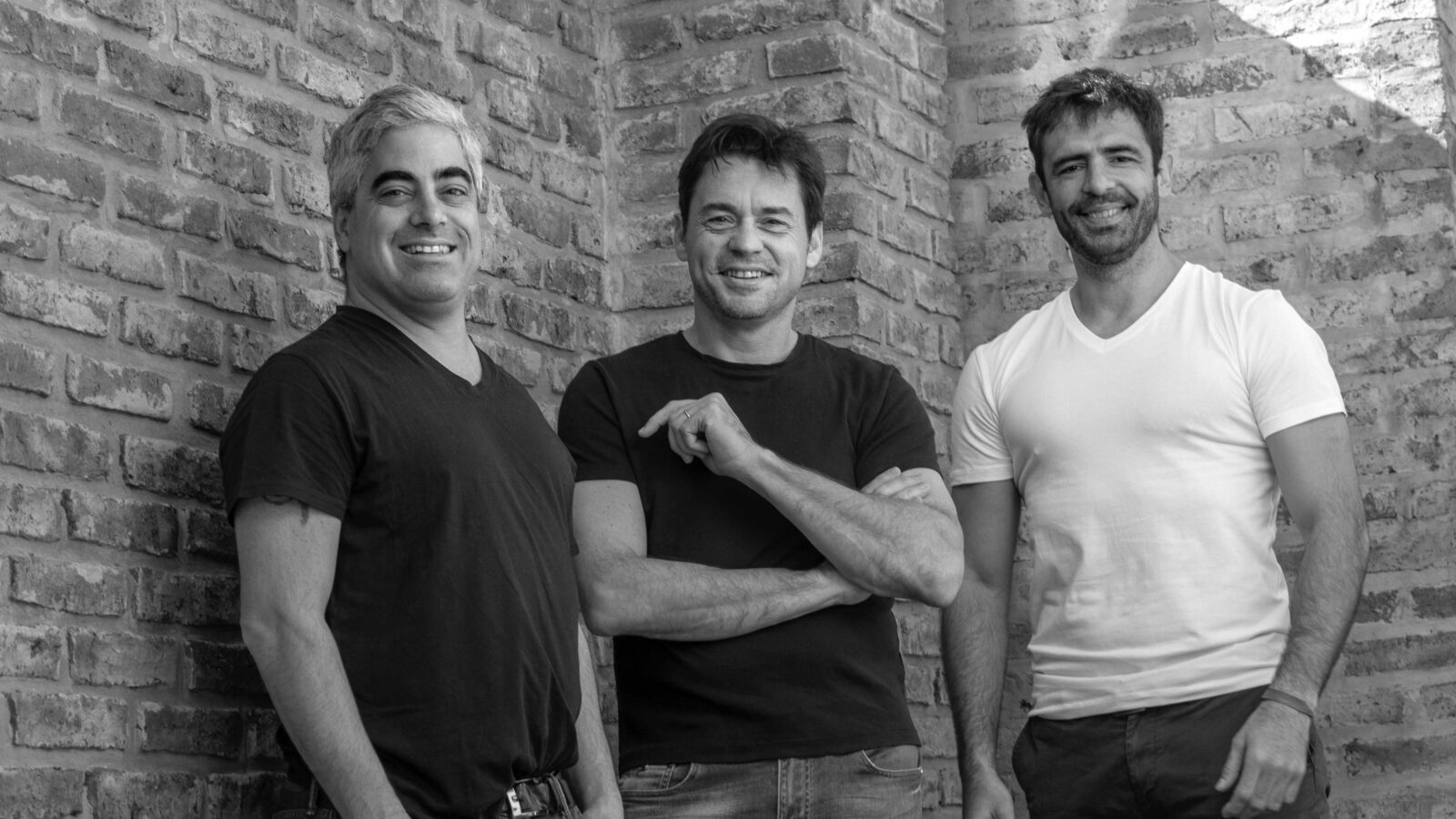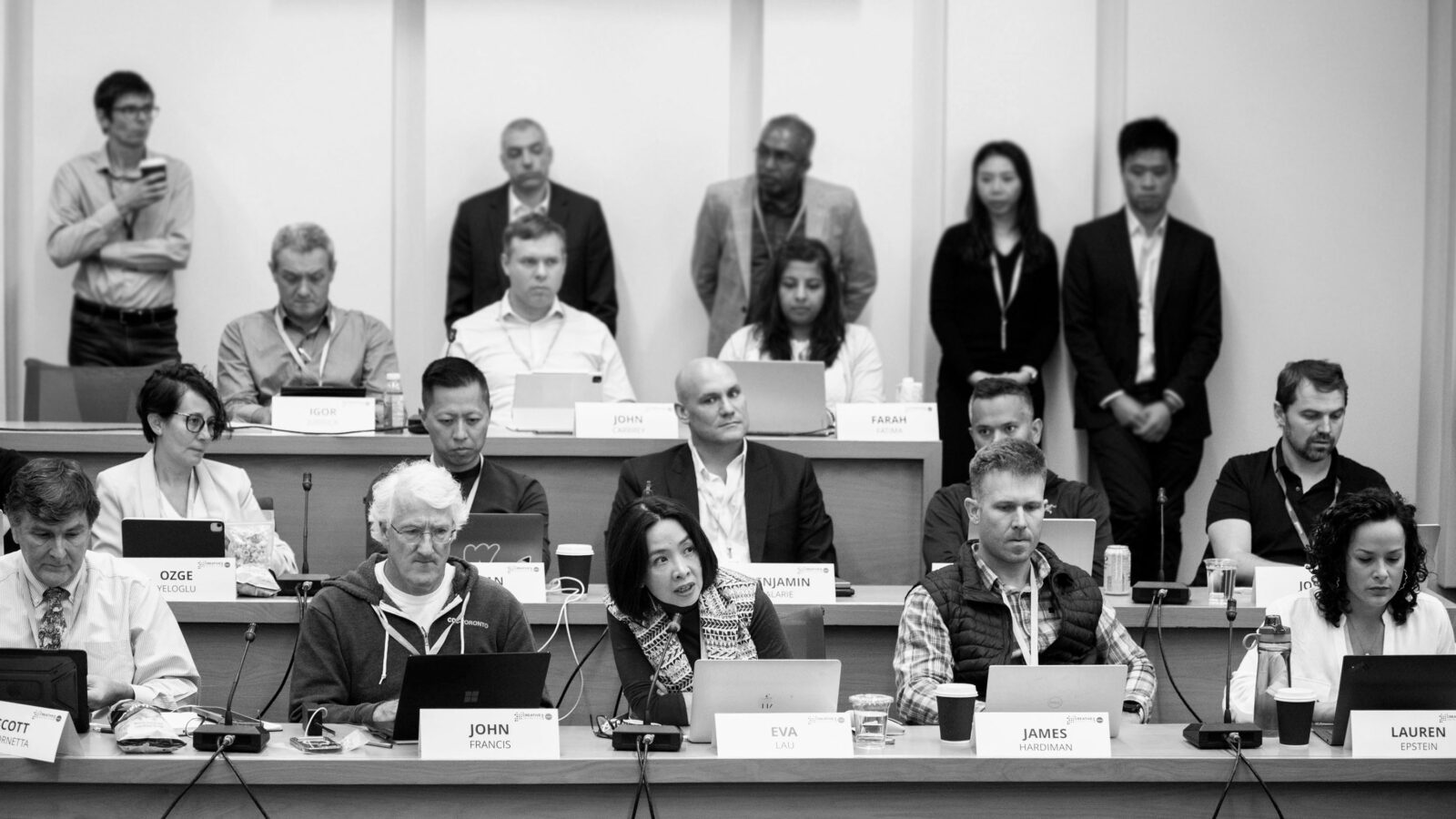The concluding main stage event at June’s Super Session was a showcase of some of the incredible talent that’s recently been nurtured within the 24 global streams that make up the Creative Destruction Lab (CDL) program. Among those enlisted to speak were the founders of Scispot, a graduating venture of CDL-Seattle’s Computational Health Stream that’s created a tech stack for biotech research and development; and FemTherapeutics, a medical device company personalizing therapeutics in women’s health graduating from CDL-Montreal Artificial Intelligence.
Another venture invited to the main stage was quantum computing company Haiqu. Unlike other streams, applicants being considered for fall admission into the Quantum program travel to Toronto for several weeks between July and August for a bootcamp. That’s where this graduating company’s co-founders, Richard Givhan and Mykola Maksymenko, met last year.
From San Francisco and Ukraine respectively, the pair decided to tackle a problem within quantum together. By Session 3, they had raised US$4 million in funding. “This goal, to make a quantum computer work soon, is the lofty carrot on a stick that we’ve been chasing,” said Givhan, “and in this moment that carrot seems deceptively, deliciously close.”
But the road hasn’t been easy. Onstage, Givhan addressed the challenges his co-founder especially has faced. “I have seen him creating breakthroughs through airstrikes, through power outages,” said Givhan.
Maksymenko then told the audience that the best time to create the future is today. And, with a new team in Waterloo, Haiqu is doing just that: pushing the limits of the current noisy intermediate-scale quantum (NISQ) era by building optimization software that’s enabling quantum applications that were previously impossible.
Sonia Sennik, executive director for CDL, later introduced Sheertex, an alumnus of the CDL-Toronto Prime 2018/19 Stream, as a company with a mission that mentors initially weren’t sure what to do with: create pantyhose that doesn’t rip. After the first session where no one raised their hands, it looked like Sheertex would not be continuing the program. Then, Sennik received an email from a mentor who could not stop thinking about the company that had developed bulletproof pantyhose and Sheertex was invited back. Since then, the company has managed to raise more than US$140 million in capital.
Katherine Homuth, Sheertex founder and CEO, took to the stage to explain how she made the “controversial” decision to go direct to consumer, which allowed the company to scale quickly and control everything in their value chain. A bet that has paid off each year as costs to produce have dropped three per cent annually.
Today, Sheertex runs the largest knitting manufacturing factory in Canada at 100,000 square feet, and will be tripling in size by the end of this year. And it is no longer just a hosiery brand. The company has developed new technology, software and material with 15 global patents either approved or pending. Now they’re in a position to sell their textile to other manufacturers, much like GORE-TEX does.
Some equally inspiring stories that didn’t get the main stage treatment include that of HIVE Medical, a remote patient monitoring enterprise graduating from CDL-Wisconsin’s Health & Wellness Stream. Founder and CEO Joe Beggs explained how when a CDL mentor raises their hand your company is guaranteed four hours between sessions; but theirs went above and beyond, answering calls and texts.
“As things came up, I was able to tell them in real time,” said Beggs. “They helped me and my team avoid potholes and speed bumps along the way. I think they saved us many months of development — and a lot of worry and rumination.” One mentor even hosted him at their house during a conference. Over the course of the CDL program, HIVE completed a clinical trial, had a patent issued and developed these deep relationships they will carry into the future. “What makes CDL different from other accelerators is the altruistic nature of the mentorship,” said Beggs.
Ryan Meyers, CEO and co-founder of AddGraft Therapeutics, also spoke of the deep support he received, describing his mentors as friends and allies, almost part of his team. Being a founder and entrepreneur can oftentimes feel like you’re fighting in the trenches alone, said Meyers, and having access to a group of seasoned experts gave him a sense of safety — despite all the risks associated with launching a startup. “Having that validation,” he said, “is really great for your mental health.”
This was the second time AddGraft Therapeutics, a cell therapy platform that is building stem cell-based bio factories, had been accepted into CDL’s advanced therapies stream. After not completing the first year, Meyers took the feedback he received and came back better prepared. “Here we are today, as a graduating company that is much better off for trying twice,” he said.
Watch the full mainstage event:
Companies and founders interested in applying to CDL can contact admissions@creativedestructionlab.com for more information.
About Creative Destruction Lab
Creative Destruction Lab (CDL) is a nonprofit organization that delivers an objectives-based program for massively scalable, seed-stage, science- and technology-based companies. Its nine-month program allows founders to learn from experienced entrepreneurs, increasing their likelihood of success. Founded in 2012 by Professor Ajay Agrawal at the University of Toronto’s Rotman School of Management, the program has expanded to 12 sites across six countries: Oxford, Seattle, Paris, Atlanta, Madison, Vancouver, Calgary, Montreal, Halifax, Berlin, and Estonia. Learn more at creativedestructionlab.com.
Media Contact
Amarpreet Kaur
Associate Director
Creative Destruction Lab
amarpreet.kaur@creativedestructionlab.com





